Depression vs Anxiety | Know the Difference Between Both
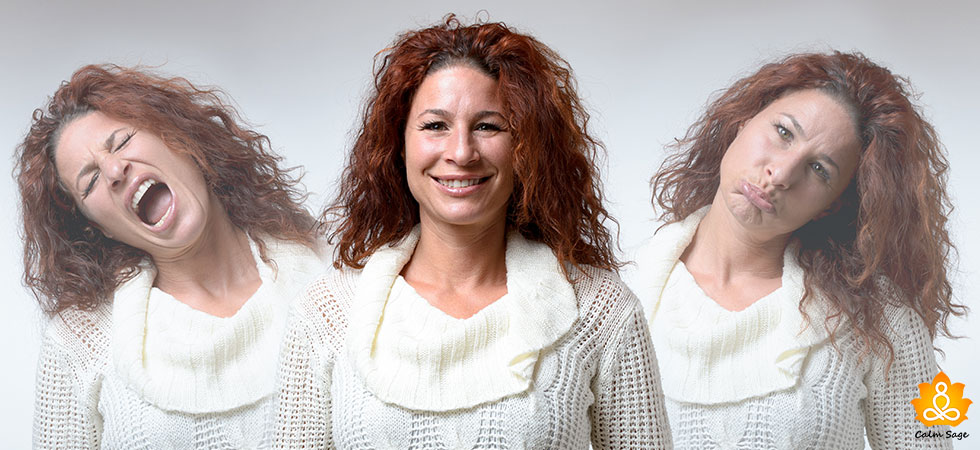
“I feel irritated”
“I have lost my appetite”
“I am eating a lot”
Am I showing signs of depression?
Or wait…
Are these signs of anxiety?
It is so confusing…
This case of confusion between the signs and symptoms of depression and anxiety is experienced by many. However, it is important to understand this difference between these two mental health conditions. This write-up will help you understand the basic differences between depression and anxiety and clear your doubts.
Jump to Understand Anxiety and Depression Difference:
Physical and Psychological Symptoms of Depression
Physical and Psychological Symptoms of Anxiety
How Anxiety and Depression Work Differently on Human?
How to Cure Depression and Anxiety
Therapy For Anxiety And Depression
Medication For Anxiety And Depression
Let us start by understanding the difference between anxiety and depression symptoms.
Symptoms of Depression and Anxiety: How Both are Different?
Physical and Psychological Symptoms of Depression
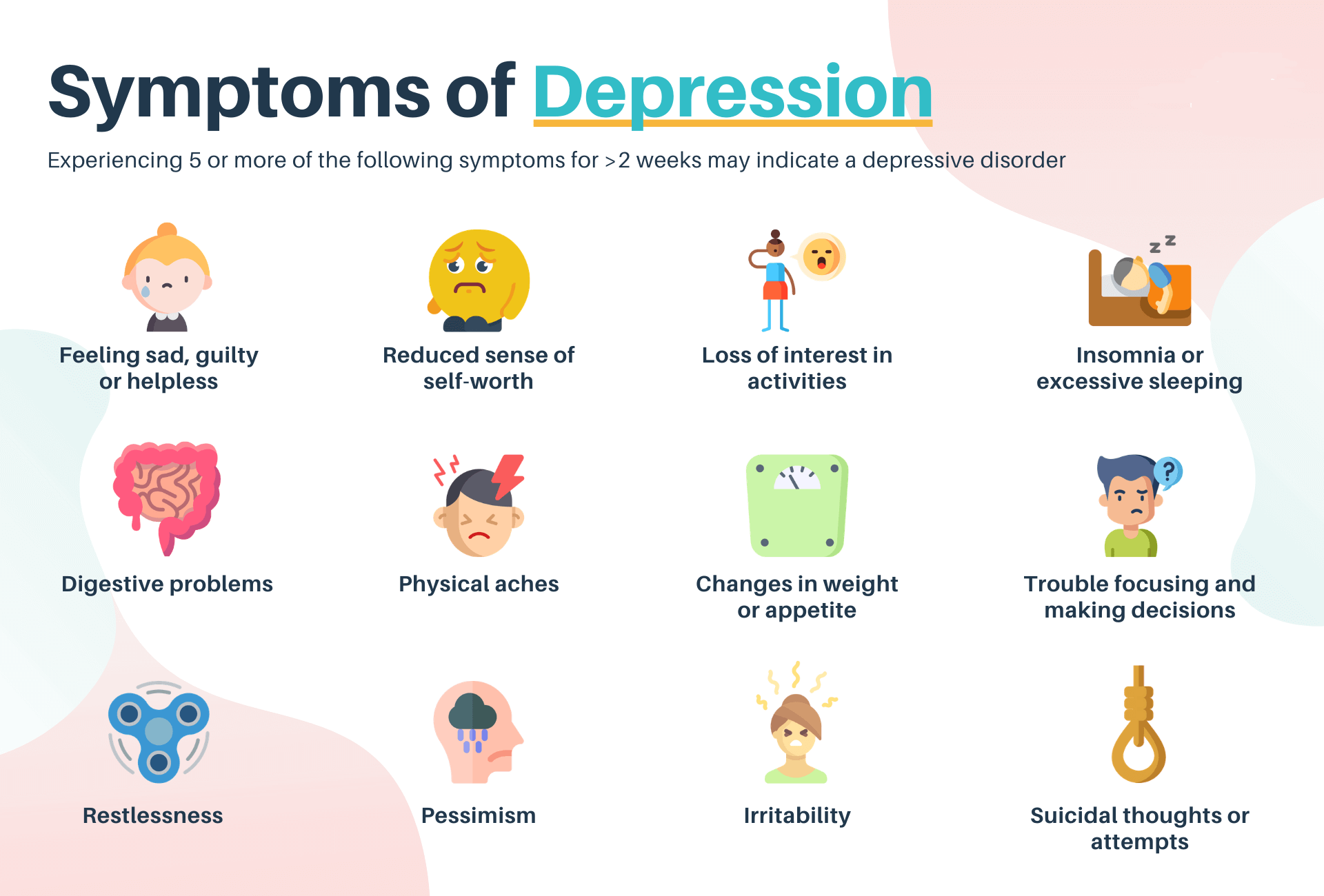
1. Physical Symptoms of Depression
- Fatigue or loss of energy
- Change in sleeping pattern
- Changes in eating habit
- Loss of libido (sexual drive)
- Fluctuations in weight
- Alcohol or drug abuse
2. Psychological Symptoms of Depression
- Persistent low mood almost the whole day
- Loss of interest in daily tasks
- Feelings of hopelessness and worthlessness
- Increased irritability
- Not enjoying being around with others
Physical and Psychological Symptoms of Anxiety
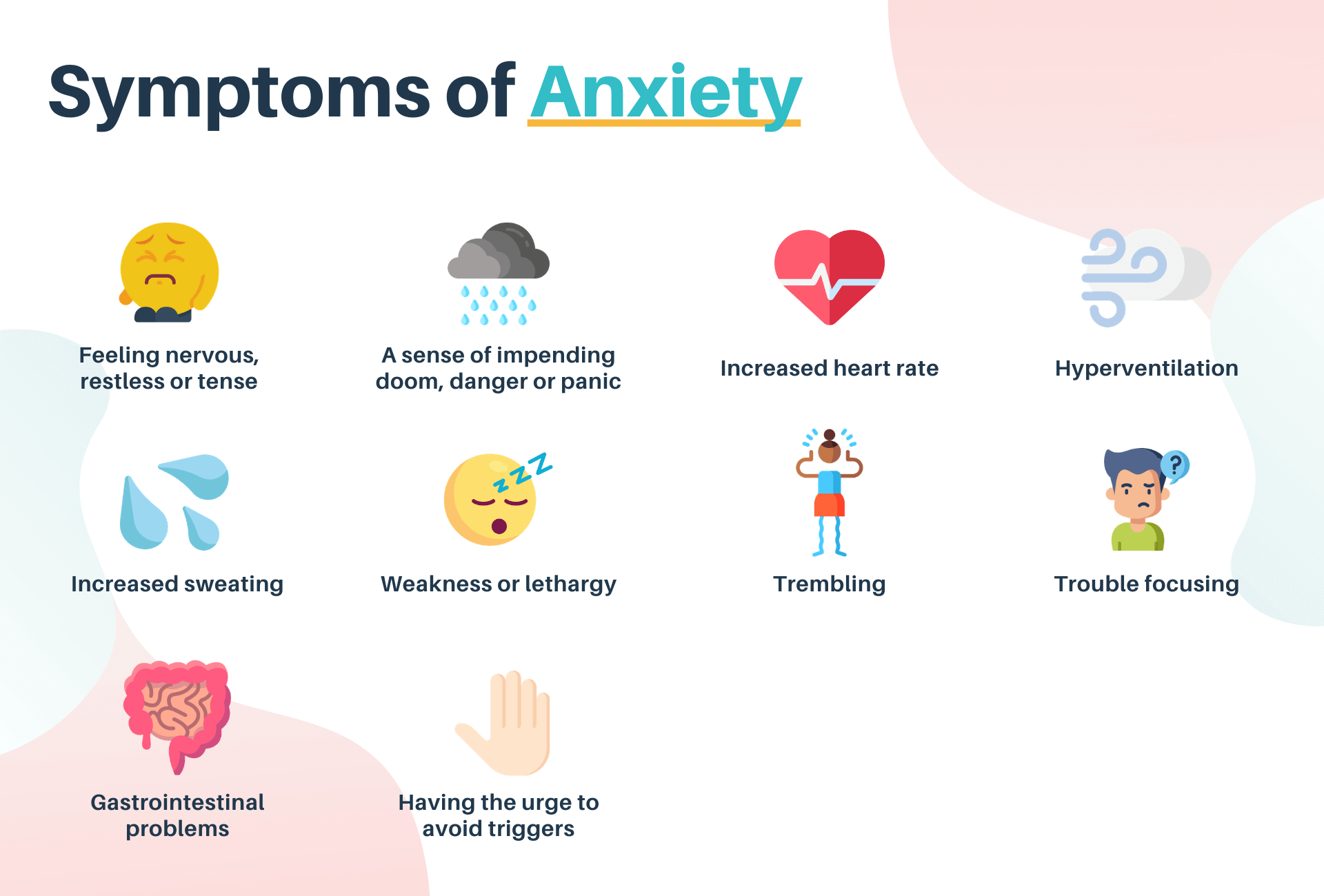
1. Physical Symptoms of Anxiety
- Dizziness and vertigo
- Racing heart
- Sweating
- Increased muscle tension
- The feeling of shortness of breath
2. Psychological Symptoms of Anxiety
- Having constant worry
- Fear of losing control over a situation
- Absentmindedness
- Feeling of dread
Now, if you are wondering when the symptoms are not that similar then why do people confuse between depression and anxiety. The answer lies in the fact that apart from these symptoms the difference between anxiety and depression often goes vague because some of the symptoms overlap, like:
- Feelings of isolation
- Increased irritability
- Difficulty in concentration
- Loss of interest in almost all activities
- Changes in sleep and eating pattern
- Feeling of nausea
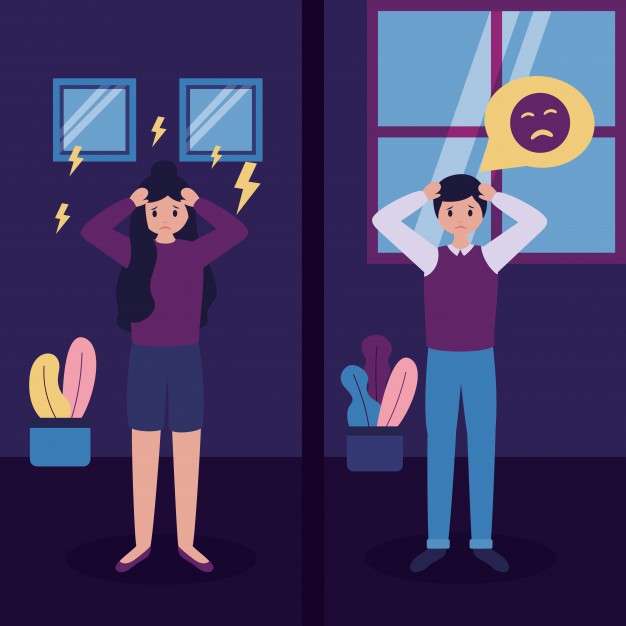
Along with this depression and anxiety tends to share common causes as well. This includes:
- Family history
- Stress
- Brain chemistry
- Medical conditions
- Trauma
Therefore, confusion often arises.
Difference between Anxiety and Depression in Terms of Impact:
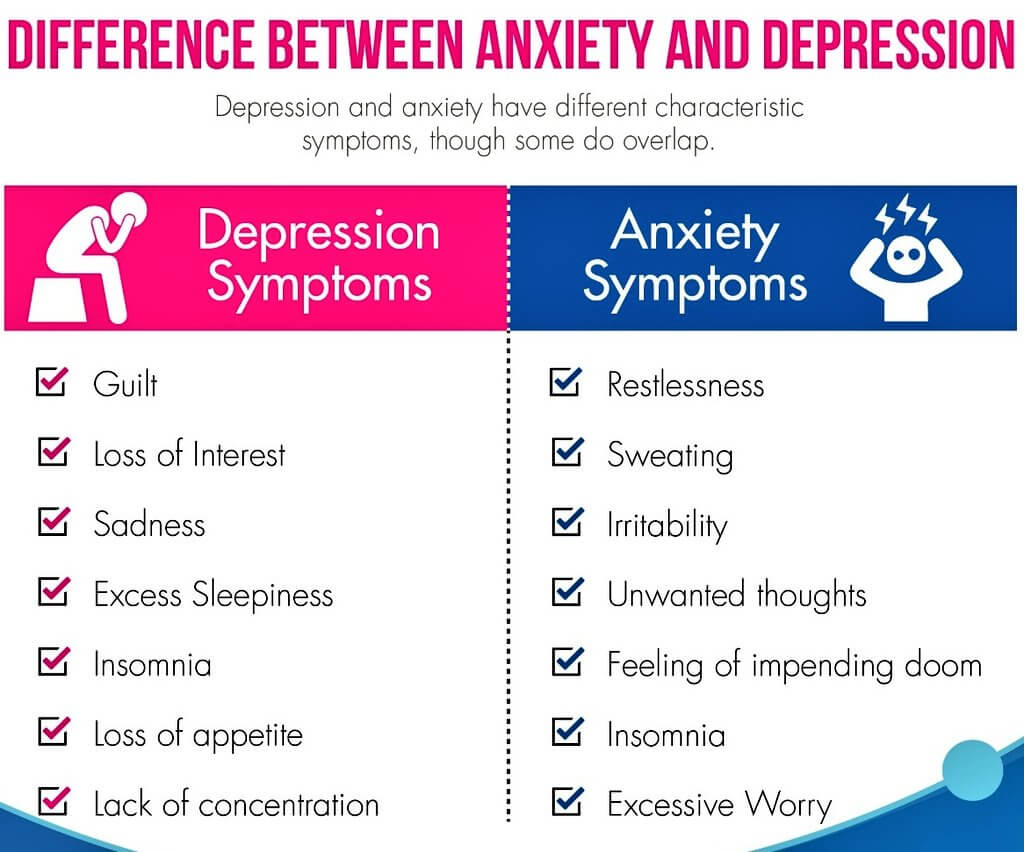
Although these similarities in causes and symptoms exist, the difference between anxiety and depression can be addressed in terms of their impact on an individual’s thinking. Some of the key differences have been highlighted below:
1. Apprehension
Anxiety is predominantly marked by excessive worrying about a situation or problem. Worries about when one will feel better, the future of one’s health, and many other things tend to paint the picture of an individual. However, in case of depression, a constant sense of worry is not experienced. In fact, the idea of not believing to get better dominates the thought pattern.
2. Perception
The perception of events in case of anxiety is anticipatory (future-oriented) in nature. Along with this, the tendency to perceive the future as psychologically closer is also seen in the condition. In the case of depression, the focus is on what is happening in the current time or what the past experiences hold for them. As a result, they perceive the present-day event in light of the past.
3. Memory Bias
In case of depression an individual is likely to focus on the memories that are associated with low life conditions or negative events. On the other hand, anxiety is not marked with any such memory bias.
4. Attention Bias
While on one hand anxiety is all about feeding the anxiety-provoking thoughts with focusing on the negative aspects of a situation, depression is not associated with any such attention bias.
How to Cure Depression and Anxiety: Some Tested Ways
Despite these differences and similarities the treatment approach of both the mental health conditions by and large remain the same in terms of channels. These channels include:
1. Therapy
Online Therapies or Counsellings like Cognitive Behavior Therapy (CBT) are found to be effective for reducing the symptoms of both anxiety and depression. Other therapies like Mindfulness-Based CBT and Interpersonal therapy also work effectively in both cases.
2. Herbs
The psychological benefits in plant chamomile are found to heal the symptoms of depression and anxiety to a large extent. Joining the herb family is plants of lavender and saffron that too bring relief in these symptoms.
Check How to Cure Depression Naturally?
3. Medication
The happy hormone- serotonin, plays a key role in the medication that is prescribed for anxiety and depression-related symptoms.
4. Lifestyle Changes
The basic yet important lifestyle changes like- eating a healthy and balanced diet, maintaining a journal, being involved in some or the other physical activity, following a proper sleep pattern, are scientifically found to overcome the symptoms of depression and anxiety.
Attention!!!
Despite these differences between anxiety and depression, diagnosis of Mixed Anxiety and Depressive Disorder (MADD) or Anxious Distress (AD) can be made depending on the signs and symptoms. But, don’t worry it can be treated with the help of treatment approaches mentioned above.
If you wish to analyses what your bodily and behavior-oriented signs are directing towards then here is a solution…
For now, you can analyze your thoughts, moods, and behavior for a week, write them down on a piece of paper. This will help you clear your head.
After this, it is recommended that you visit a mental health practitioner and discuss the same with him/her. This piece of paper will help you to convey your signs effectively and without a miss to the counselor.
What To Expect In Treatment Of Depression, Anxiety Or Both?
Depending on the diagnosis made by your mental health professional via physical examination or screening test, the following treatment approaches come into play:
Therapy For Anxiety And Depression (Or Both):
Although there are many therapies available for the treatment of anxiety and depression, the most preferred therapies are:
- Cognitive Behaviour Therapy (CBT): You’ll learn to adjust your thoughts, reactions, and behaviors to be more even and rational.
- Problem-Solving Therapy: The focus of this therapy is to focus on the problem and learning ways to cope with them.
- Interpersonal Therapy: This therapy helps individuals to build strong interpersonal relations by working on communication and expressive skills.
- Alternative Therapy: Although the therapies for anxiety and depression mentioned above works best for the treatment of both, there are some alternative therapies that are also available. This includes Hypnotherapy. It is found to heal symptoms of both anxiety and depression by bringing focus on feelings and thoughts that are overwhelming.
Medication For Anxiety And Depression (Or Both):
To attain chemical balance medication may also be a part of the treatment approach. As the symptoms of depression and anxiety overlap in many ways (as discussed above) so you might be prescribed with any of the three medication family:
- Antidepressants: Antidepressants include two most famous classes of drugs viz., serotonin-norepinephrine reuptake inhibitors (SNRIs), and selective serotonin reuptake inhibitors (SSRIs). Depending on the severity of symptoms the appropriate drug will be suggested.
- Mood Stabilizers: This family of drugs is used for stabilizing the mood.
- Antianxiety Medications: If the symptoms of anxiety dominate the symptoms of depression then this drug family may be preferred. The reason being, they are more helpful in reducing the symptoms of anxiety than depression.
If you need extra support in your treatment with anxiety or depression symptoms you may join support groups to ease the process.
Additionally, if symptoms hit a peak and you feel overwhelmed don’t feel helpless and reach out for help on these helplines.
Hope this helps you to clear that fuzziness in your head about the difference between anxiety and depression. If you have any other inputs or queries do let us know in the comment section below.
Take care!
Recommended Articles for Depression and Anxiety:
How To Tell If Someone Is Dealing With Depression?
Signs Of Teen Depression Not To Be Missed!
Gift Ideas For A Friend Struggling With Depression
Celebrities with Depression Who Fought and Defeated it
Top 20 Songs To Help With Depression and Anxiety







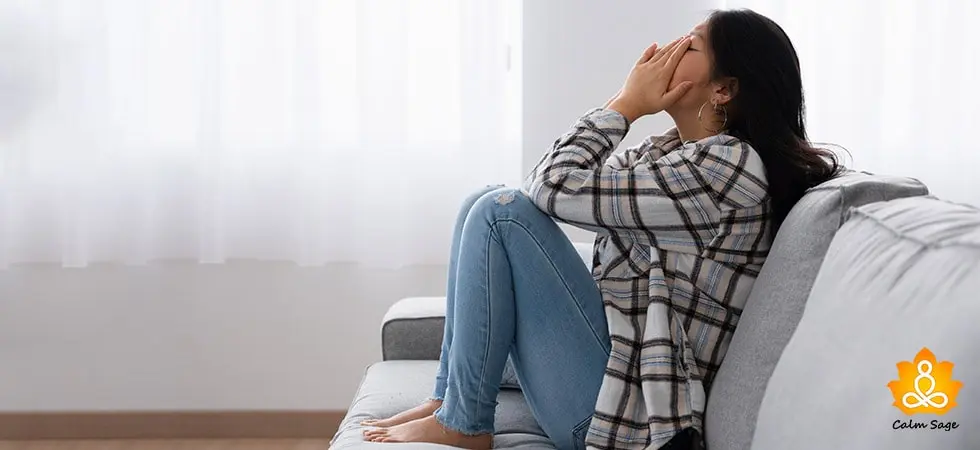
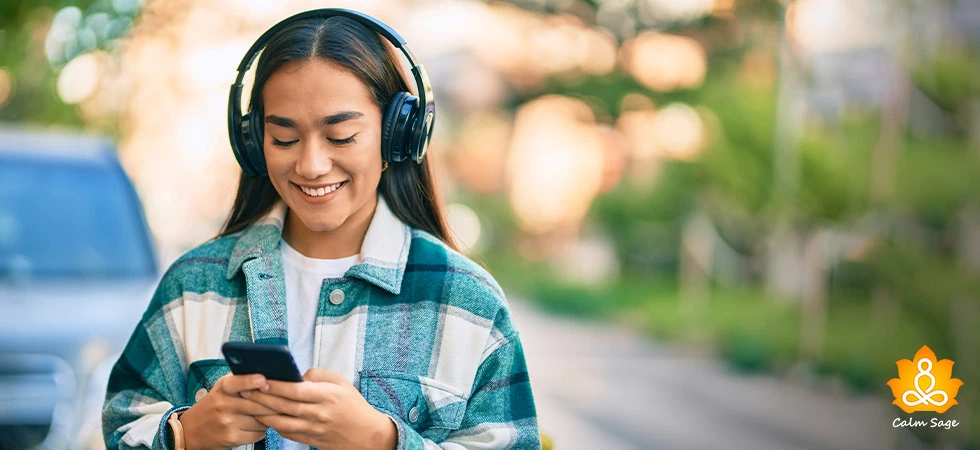












I used to think that depression and anxiety are the same things but now after reading this blog I am more clear about these things. Thanks for providing this information.